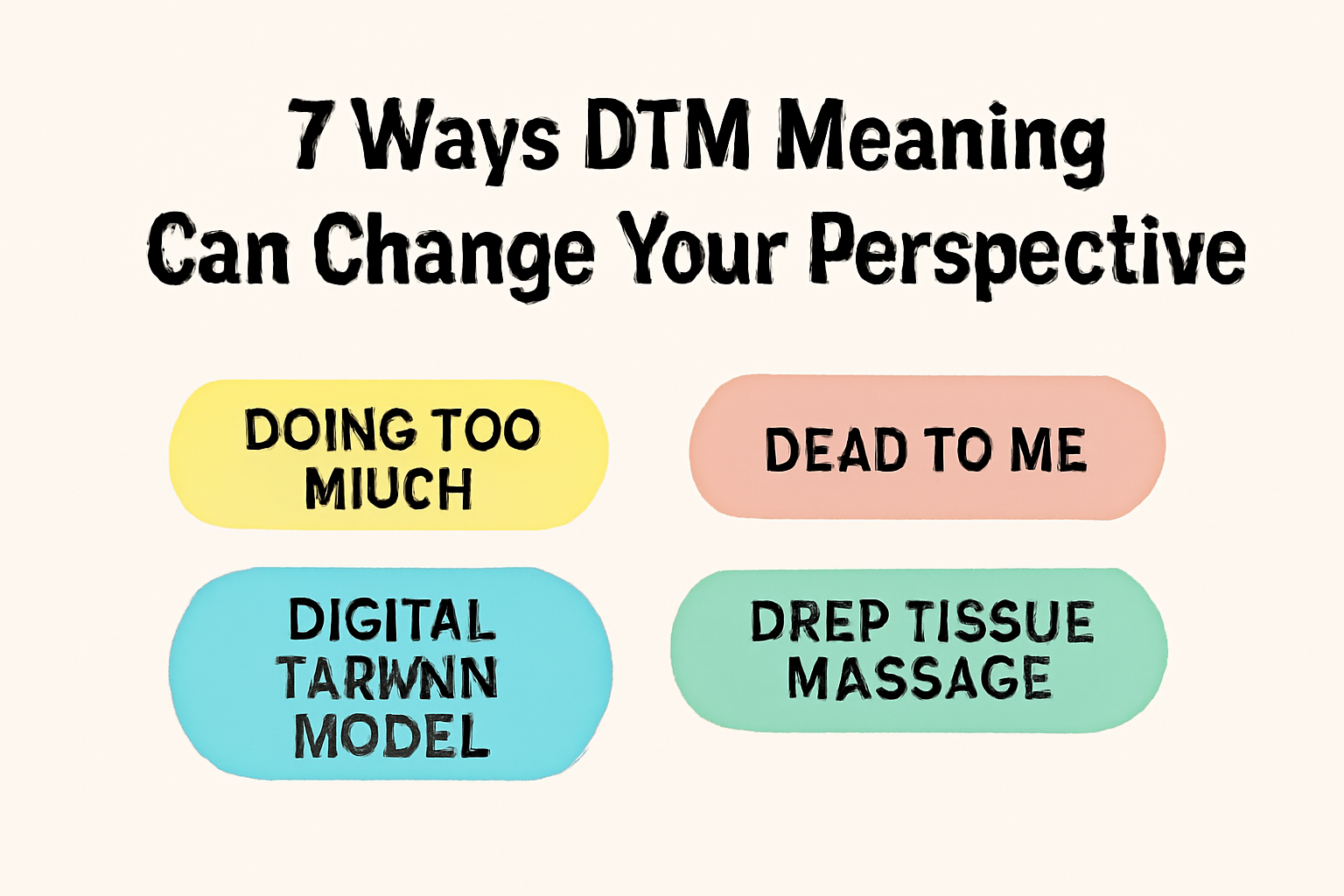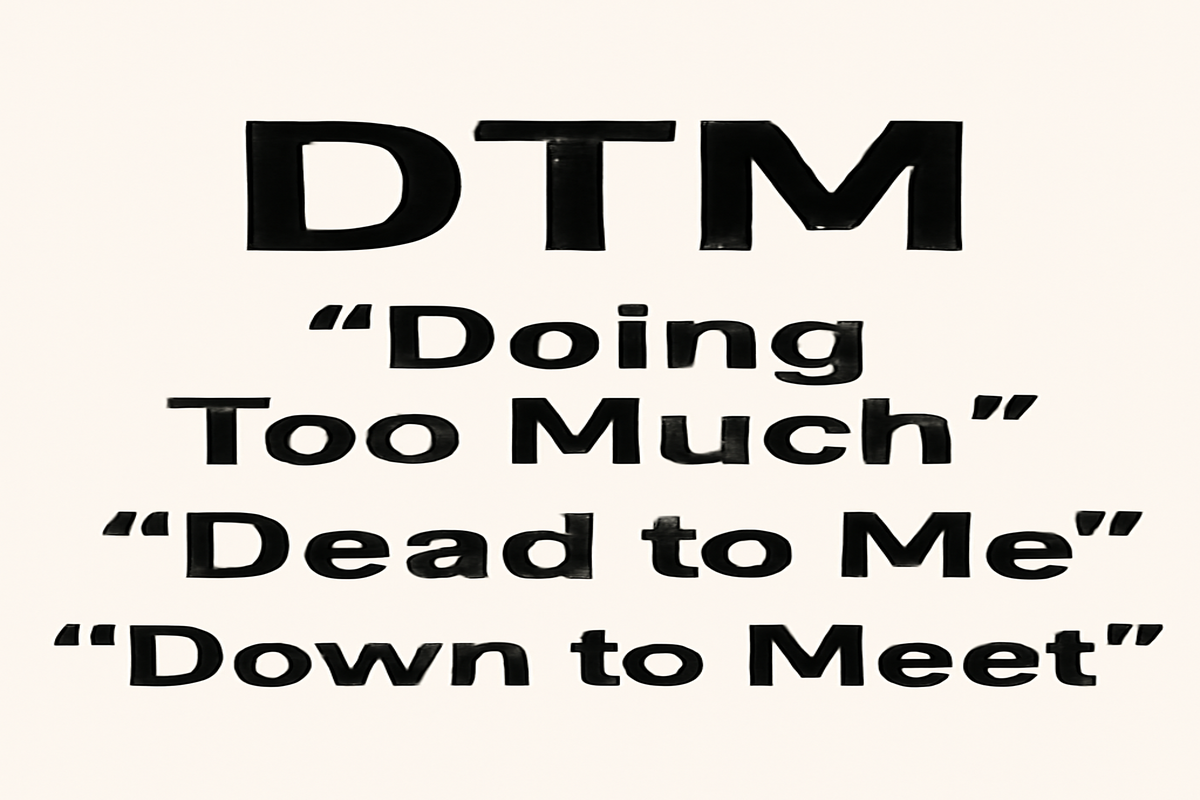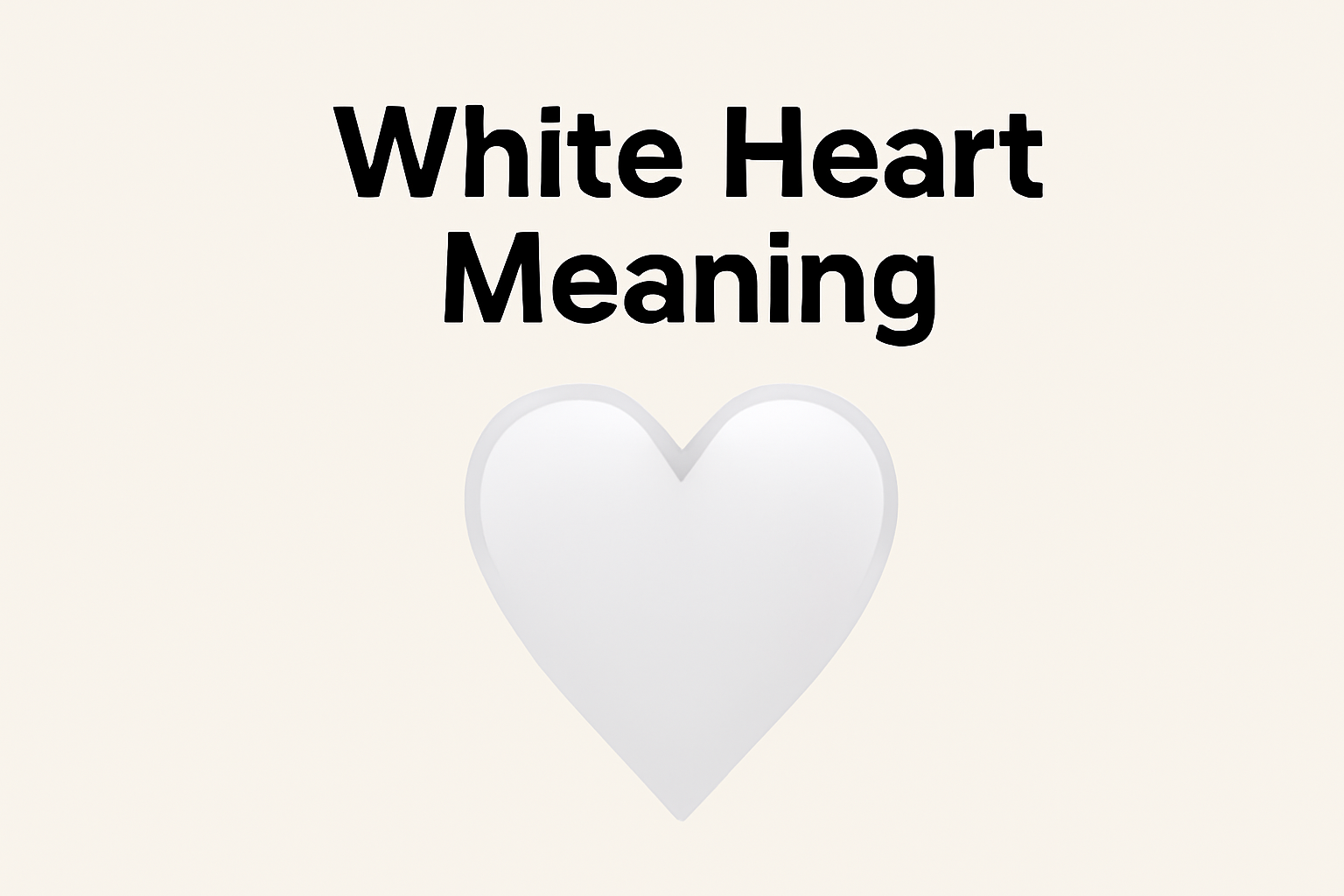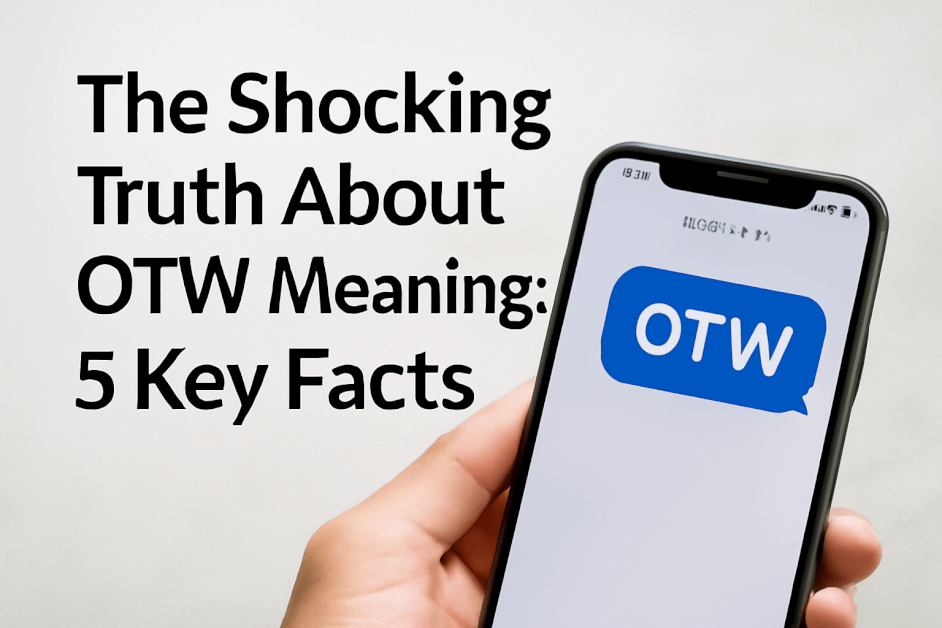
Introduction:
In the fast-paced digital world, language evolves rapidly, and new abbreviations or terms emerge frequently. One such term is “DTM,” which carries different meanings depending on the context. From texting slang to professional jargon, DTM can refer to a variety of things. In this article, we will explore seven key ways the meaning of DTM can change your perspective across various fields, from social media to healthcare, and from digital marketing to fashion. Understanding these different meanings can help you navigate conversations and industries with greater ease and clarity.
1. Understanding DTM in the Digital Age
In today’s digital age, acronyms and abbreviations play a crucial role in speeding up communication. DTM, for instance, is commonly used in texting and internet slang. When someone says they’re “DTM,” they could be implying one of several meanings, such as “doing too much” or “dead to me.” This versatility makes it a key part of modern digital conversations. For instance, if a friend texts you “DTM,” they may be expressing their frustration or indicating that they are overwhelmed. In social media, DTM can often be a reaction to over-the-top behavior or a means of expressing extreme emotion.
2. DTM and Its Role in Technology
Beyond slang, DTM also plays an important role in the tech world, where it has several significant meanings. One of the most important interpretations is “Digital Terrain Model.” This refers to a 3D representation of terrain surfaces created from data such as elevation, which is used in fields like geospatial analysis, geography, and mapping. The digital terrain model plays a vital role in understanding the topography of areas for planning, construction, and even disaster response. It serves as a fundamental tool for environmental engineers and urban planners alike, highlighting how DTM is integral to shaping the world through technology.
3. DTM’s Influence on Digital Marketing
In the realm of digital marketing, DTM often stands for “Data Transfer Module.” This refers to a crucial part of data management that facilitates the transfer of information across platforms. A data transfer module ensures that marketing teams can seamlessly move data, such as customer behavior metrics and marketing campaign details, from one system to another. This process is vital for optimizing digital campaigns, measuring success, and improving overall customer experience. Digital marketing professionals rely on these modules to maintain the flow of information that drives real-time decision-making, content targeting, and analytics.

4. DTM in Professional Environments
In professional settings, DTM can refer to “Dynamic Traffic Management,” a system designed to optimize the flow of traffic, whether it’s on roads, websites, or digital networks. In logistics and transportation, dynamic traffic management allows authorities to respond to real-time conditions by adjusting traffic signals and routes to improve traffic flow and reduce congestion. Similarly, in digital environments, dynamic traffic management tools ensure that web traffic is routed efficiently, preventing bottlenecks and optimizing user experience. This use of DTM is especially relevant for businesses that rely on smooth digital or physical traffic flows to maximize productivity.
5. DTM and the Evolving Language of Social Media
On social media platforms, DTM has taken on multiple meanings, making it a versatile term in internet slang. It can refer to “Don’t Touch Me,” signaling a user’s desire for space, or “Dead To Me,” indicating an intense level of emotional separation from someone. These slang uses of DTM have become part of the digital lexicon, frequently appearing in memes, tweets, and Instagram posts. Such expressions enable users to convey strong emotions quickly and concisely, making it easier to communicate in the fast-moving world of social media. The evolution of internet slang has further cemented DTM as a necessary shorthand for expressing complex feelings.
6. DTM’s Significance in Healthcare and Medical Fields
In healthcare, DTM often refers to “Deep Tissue Massage,” a therapeutic technique used to treat muscle pain and stiffness. This type of massage targets deeper layers of muscle and connective tissue to alleviate chronic tension, promote relaxation, and increase circulation. Many physical therapists and massage therapists incorporate DTM into their treatment plans for patients dealing with conditions like fibromyalgia, sports injuries, and back pain. The impact of deep tissue massage on overall well-being highlights how DTM plays a crucial role in both physical and mental health management.
7. The Future of DTM and Digital Communication
As the digital landscape continues to evolve, the meanings of terms like DTM will continue to adapt to new technologies and trends. Whether it’s in the context of digital terrain models, dynamic traffic management, or internet slang, DTM will remain a key part of how we communicate in both personal and professional settings. Looking ahead, DTM may take on even more meanings, influenced by advancements in technology and the ever-changing nature of online communication. Understanding these meanings can provide a clearer view of how language adapts to technology, helping individuals navigate both their online and offline worlds more effectively.
What Does DTM Mean on Snapchat?
On Snapchat and other social media platforms, DTM can often be shorthand for “Dead To Me” or “Don’t Touch Me.” These meanings convey strong emotions, such as frustration or emotional detachment, often in a playful or exaggerated manner. It’s a great example of how DTM can be used to succinctly express emotions without lengthy explanations.
What Does DTM TMB Mean in Texting?
In texting, “DTM TMB” can be interpreted as “Doing Too Much, Thank My Bad.” It’s often used to describe someone who has overstepped a boundary or is being overly dramatic, combined with an apology for the overreaction. It’s a casual, friendly way of saying, “I might have overdone it, but I’m sorry.”
What Does DTM Mean in Fashion?
In the fashion world, DTM stands for “Dyed To Match.” This refers to garments, fabrics, or accessories that are dyed to match a specific color. For instance, a shirt might be “dyed to match” a pair of pants or shoes, ensuring a seamless and coordinated look. This practice is common in both everyday fashion and formal wear, as matching colors enhances the overall aesthetic.
Conclusion
DTM is a prime example of how acronyms and abbreviations can carry vastly different meanings depending on the context. From digital terrain models to internet slang, DTM plays a role in various fields, including technology, marketing, healthcare, and social media. By understanding the many interpretations of DTM, individuals can more easily navigate conversations and industries, ultimately adapting to the ever-changing landscape of modern communication.






